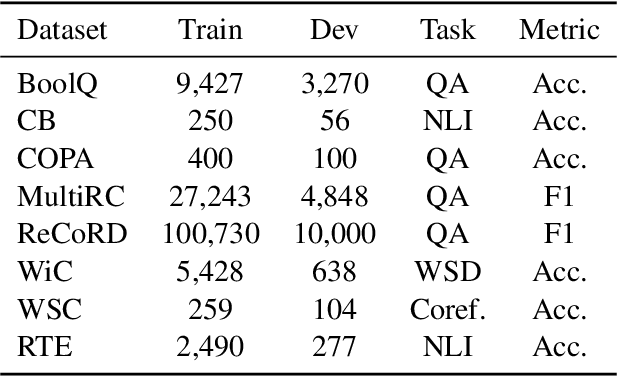Decomposed Prompt Tuning via Low-Rank Reparameterization
Paper and Code
Oct 16, 2023



While prompt tuning approaches have achieved competitive performance with high efficiency, we observe that they invariably employ the same initialization process, wherein the soft prompt is either randomly initialized or derived from an existing embedding vocabulary. In contrast to these conventional methods, this study aims to investigate an alternative way to derive soft prompt. Our empirical studies show that the soft prompt typically exhibits a low intrinsic rank characteristic. With such observations, we propose decomposed prompt tuning, a novel approach that utilizes low-rank matrices to initialize the soft prompt. Through the low-rank reparameterization, our method significantly reduces the number of trainable parameters while maintaining effectiveness. Experimental results on the SuperGLUE benchmark in both high-resource and low-resource scenarios demonstrate the effectiveness of the proposed method.
 Add to Chrome
Add to Chrome Add to Firefox
Add to Firefox Add to Edge
Add to Edge